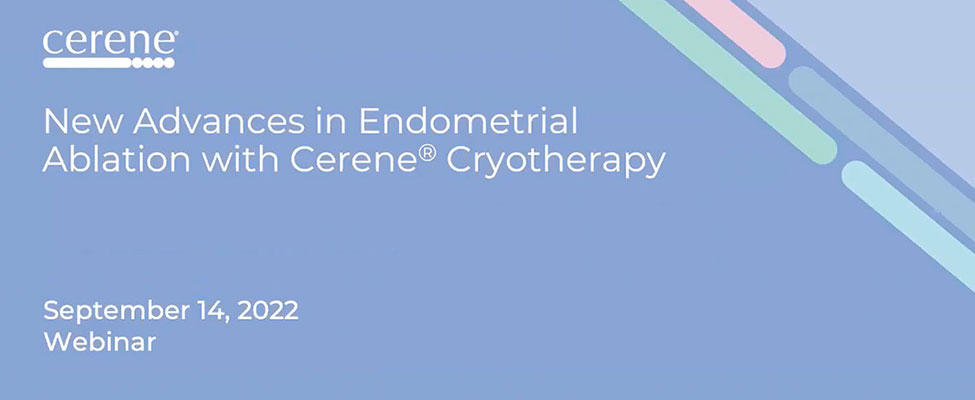William Boyd, MD shares his experience using the Cerene Cryotherapy Device for the treatment of heavy menstrual bleeding.
Barbara Levy, MD moderates a discussion with Leslie Hansen Lindner, MD and Taraneh Shirazian, MD as they explore how physicians can achieve patient goals and utilize cryotherapy as a satisfactory alternative endometrial ablation method.
Rhonda Schafer-McLean, MD and her patient, Brooke, discuss how and why the Cerene Cryotherapy Device was the right treatment option for Brooke’s heavy menstrual bleeding symptoms.
GYN experts, Taraneh Shirazian, MD, Richard Salter, MD and Barbara Levy, MD, explore how women’s health professionals can make heavy menstrual bleeding care more patient-centered with new innovations in cryotherapy.
Barbara Levy, MD moderates a discussion with Geoffrey Bowers, MD and Leslie Hansen Lindner, MD on their insights on the evolution of endometrial ablation and how innovations in cryotherapy may reshape thinking around heavy menstrual bleeding treatment.
A compilation of physician perspectives on the treatment of heavy menstrual bleeding and the Cerene Cryotherapy Device. (4 minutes)
Barbara Levy, MD discusses the treatment of heavy menstrual bleeding and the Cerene Cryotherapy Device. (4 minutes)
James Greenberg, MD and Barbara Levy, MD discuss the implications from recent and historical publications on the rates of hysterectomy after an endometrial ablation.
James Coad, MD and Andrew Brill, MD discuss the science and benefits of cryotherapy for endometrial ablation.
Barbara Levy, MD and Todd Rumsey, MD discuss patient selection criteria for the Cerene Cryotherapy Device (27 minutes).
Barbara Levy, MD along with panelists Robert Rubino, MD, Richard Salter, MD, and Shannon Smith, MD provide insights into the management of menorrhagia. (59 minutes)
Barbara Levy, MD and Gerard Reilly, MD discuss how new innovations in cryotherapy are transforming the treatment of heavy menstrual bleeding. (45 minutes)
